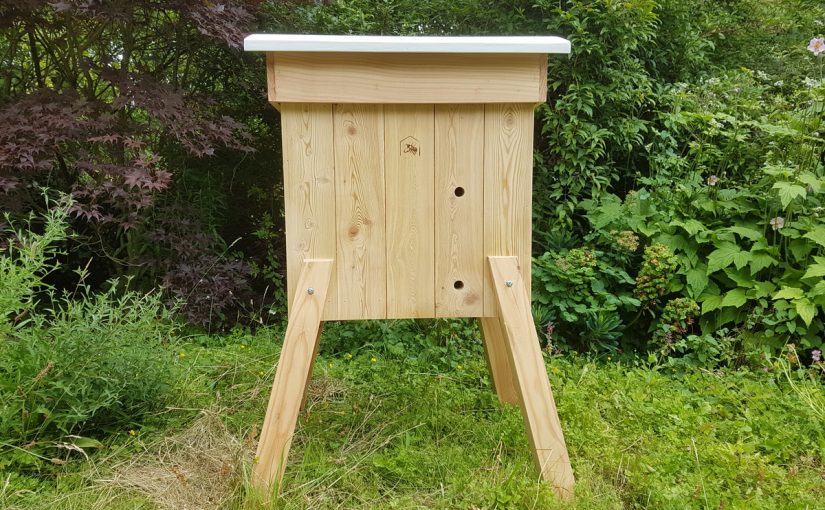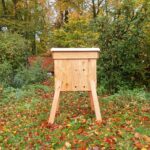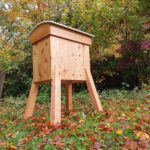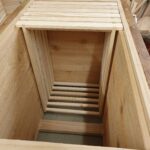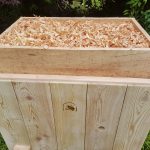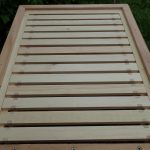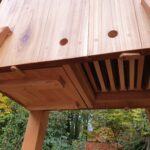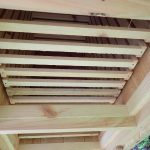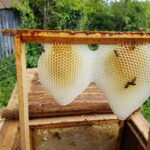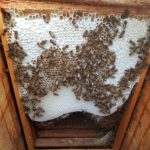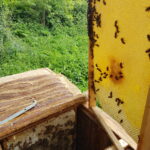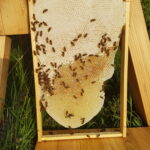New Design for 2021
Specifications of the Hive body
External dimensions Length 64cm Width 42cm Height 56cm
Internal dimensions L 52cm W 30cm Depth 51.5cm
Wall thickness 5.5 cm
Quilt box 10cm deep
Height above ground without quilt box 100cm
Frame
Internal size 26.4 cm x 43 cm
Features
- The hive body is made up of two layers of 27mm Cedar
- The inner wall is left rough sawn which encourages the bees to propolize more than they would do on a planed smooth interior. This Propolise is important as it is antibacterial and so vital for colony health.
- The hive is kept off the ground by durable larch legs and so you can inspect the hive without straining your back.
- There are two removable boards on the bottom. These allow you to monitor comb growth and population size without disturbing the bees and examine the board for comb debris. If feeding is required then this can be done via the bottom of the hive.
- On the frames is put a hessian top cloth which has been sized with a flour and water paste.
- The frames are 27mm wide with a V-shaped top bar. The bottom bar is narrower at 15mm. This allows a clear view of the comb above
- A quilt box adds insulation to the top of the hive which is filled with wood shavings. This allows passage of moisture to vent out through the curved roof
- Entrances are at one end. Typically the top hole is favoured for bringing in nectar and pollen and the bottom hole used to fan out the moisture of the ripening honey. and This where the brood will be and as the colony expands honey will be stored at the other end. The bees can control the size of the entrance by building a propolis screen.
Managing a Golden hive
The intention of this hive is to have minimal interventions, giving the bees a warm insulated hive where they can grow deep comb without a queen excluder. Frames are added as the colony grows and a modest harvest can be taken by removing a frame with capped honey on the left-hand side of the hive without disturbing the brood. An alternative method would be to leave all the frames in the hive body for the bee and then add a shallow super by replacing the quilt box during a nectar flow.
